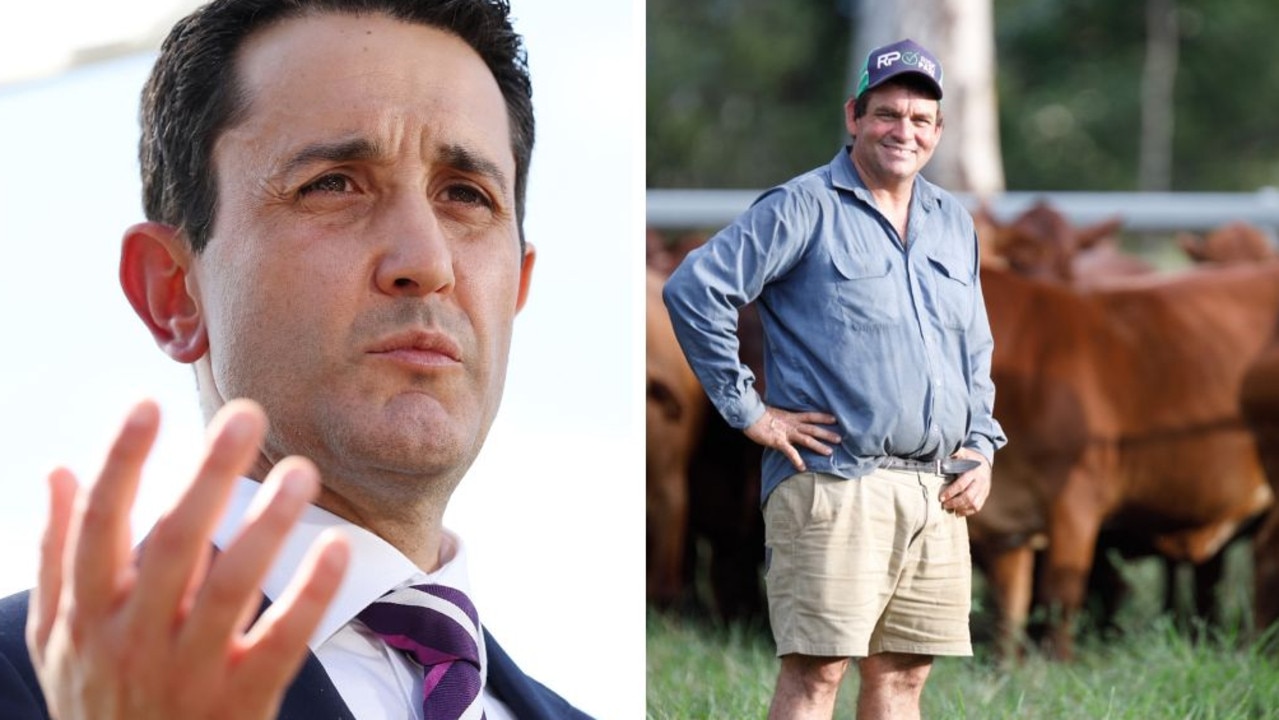Former Qld premier Mike Ahern farewelled at state funeral on Sunshine Coast
Former premier Mike Ahern has been remembered as an “honourable” man who “put people above politics” at a moving service on the Sunshine Coast.
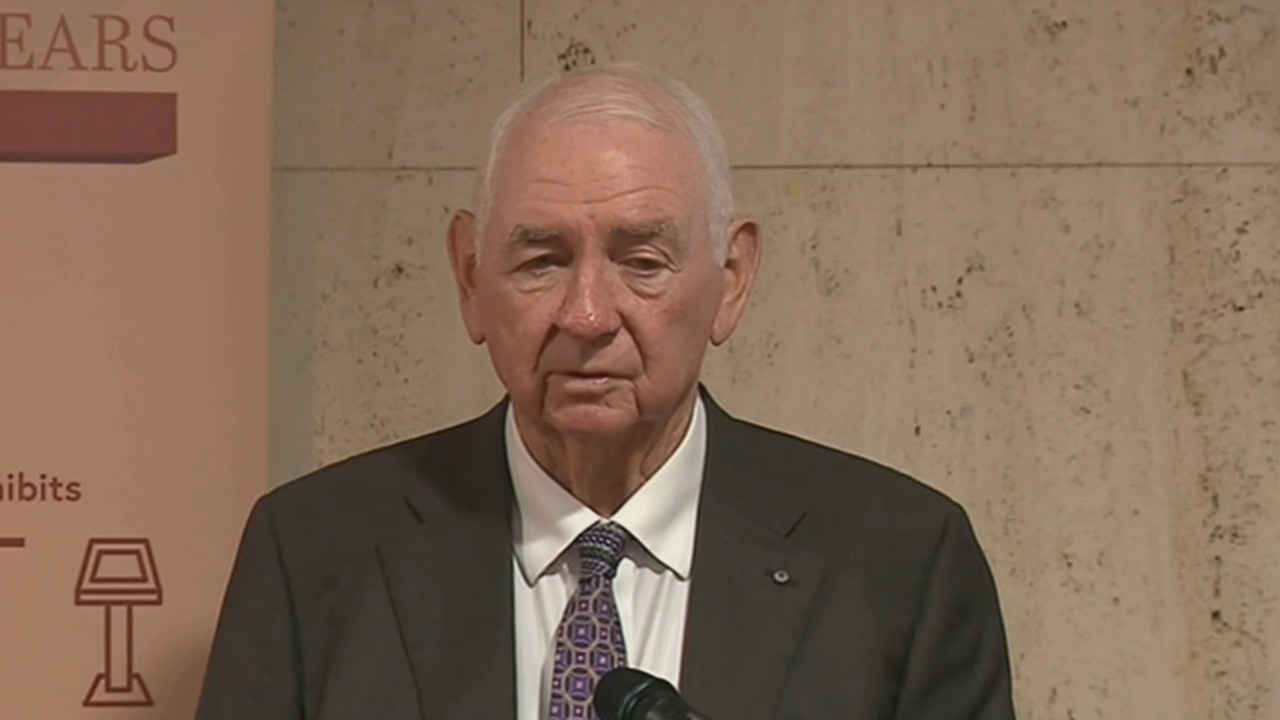
QLD News
Don't miss out on the headlines from QLD News. Followed categories will be added to My News.
Former Queensland premier Mike Ahern has been remembered as an “unquestionably honourable” man who “put people above politics” at a state funeral on the Sunshine Coast.
Mourners packed into Our Lady of the Rosary Catholic Church at Caloundra’s Shelly Beach on Friday to pay tribute to a man who led with courage during the tumultuous late 1980s when the bombshell Fitzgerald Inquiry blew the lid on police and political corruption.
Mr Ahern died on August 11 after a battle with cancer. He was 81.
One of his five children, son John Ahern, said his father was “a big man with a big heart” and showed “unwavering determination and guts”.
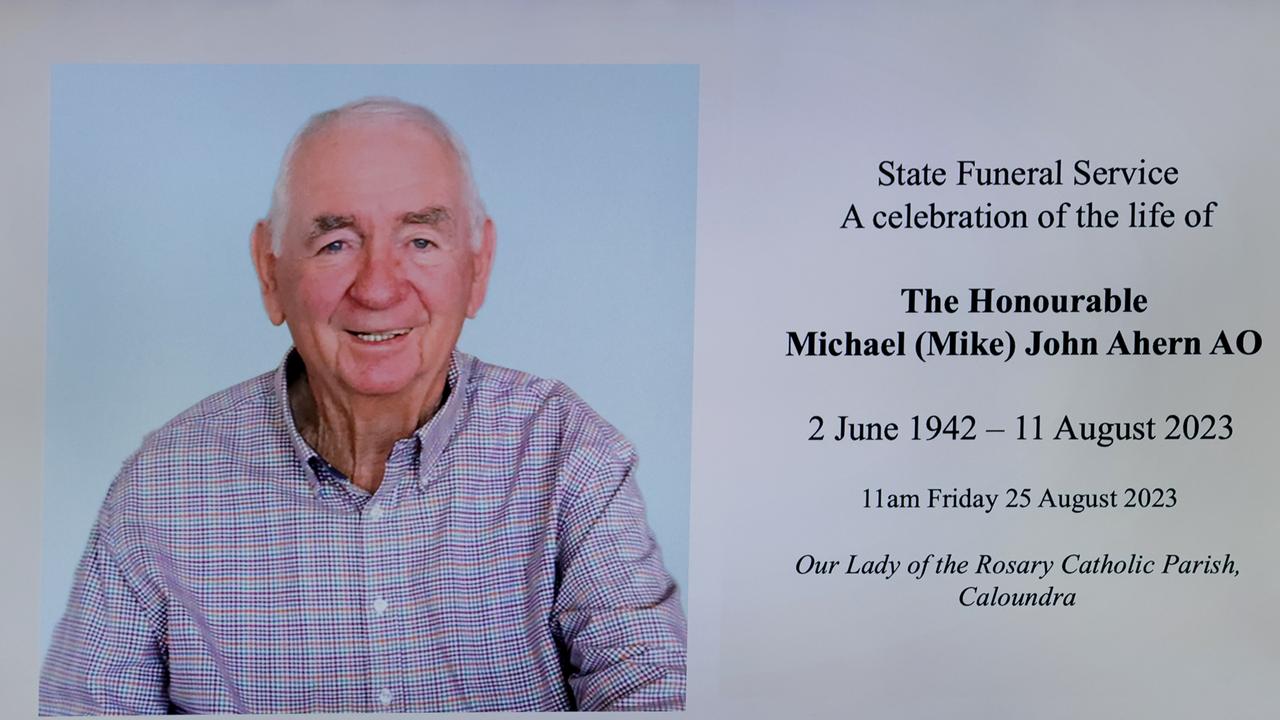
Mr Ahern’s wife of 52 years, speaking through daughter Christine, said her husband “loved all people, no matter their background, and treated them all the same”.
“He was loyal, kind and always made me laugh. Not once in all those years did we fight; he was my best adviser, a man of insight.
“He is still with me on every walk I take.”
Premier Annastacia Palaszczuk said Mr Ahern was “one of the truest gentlemen I ever met”.
“He was ahead of his time and not afraid to stand out on his own … he championed new ideas, innovation and social justice.”
Ms Palaszczuk said Mr Ahern committed himself to adopting Mr Fitzgerald’s recommendations with “arguably the foremost profound words ever uttered in our political history: lock, stock and barrel”.
“It has remained the high bar the rest of us strive to live up to.”
She said the committees Mr Ahern introduced to Parliament, including Ethics and Estimates, remained enduring cornerstones of our democracy.
“Queensland has lost a great friend, someone who stayed true to himself, his faith, his moral compass.”
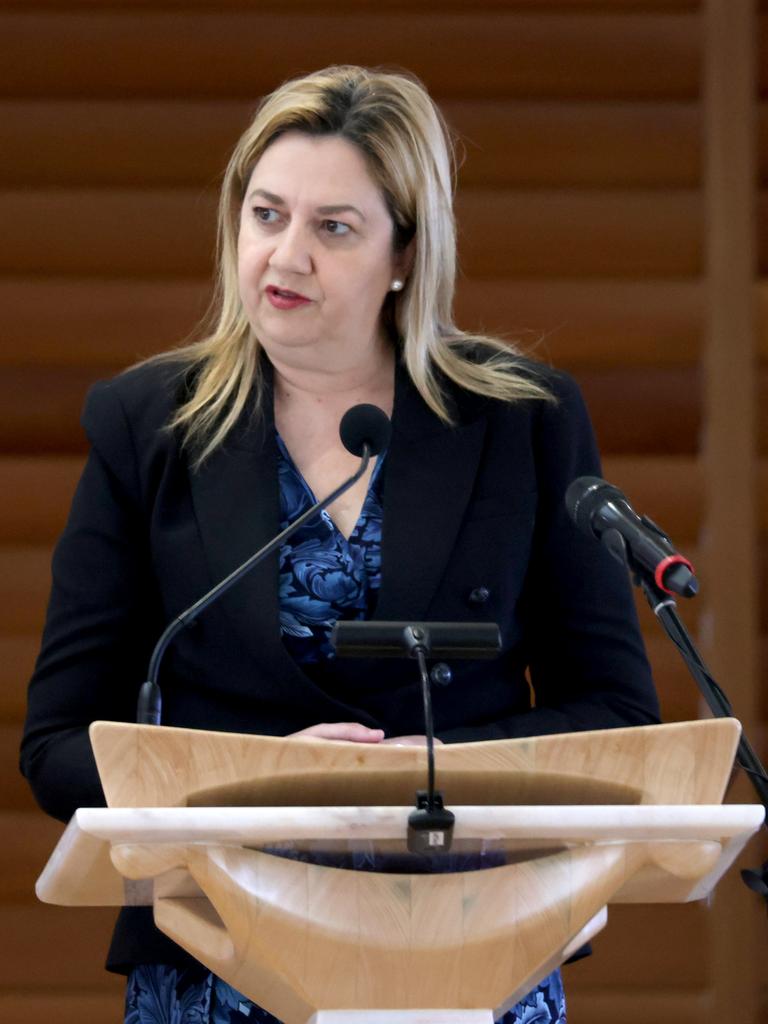
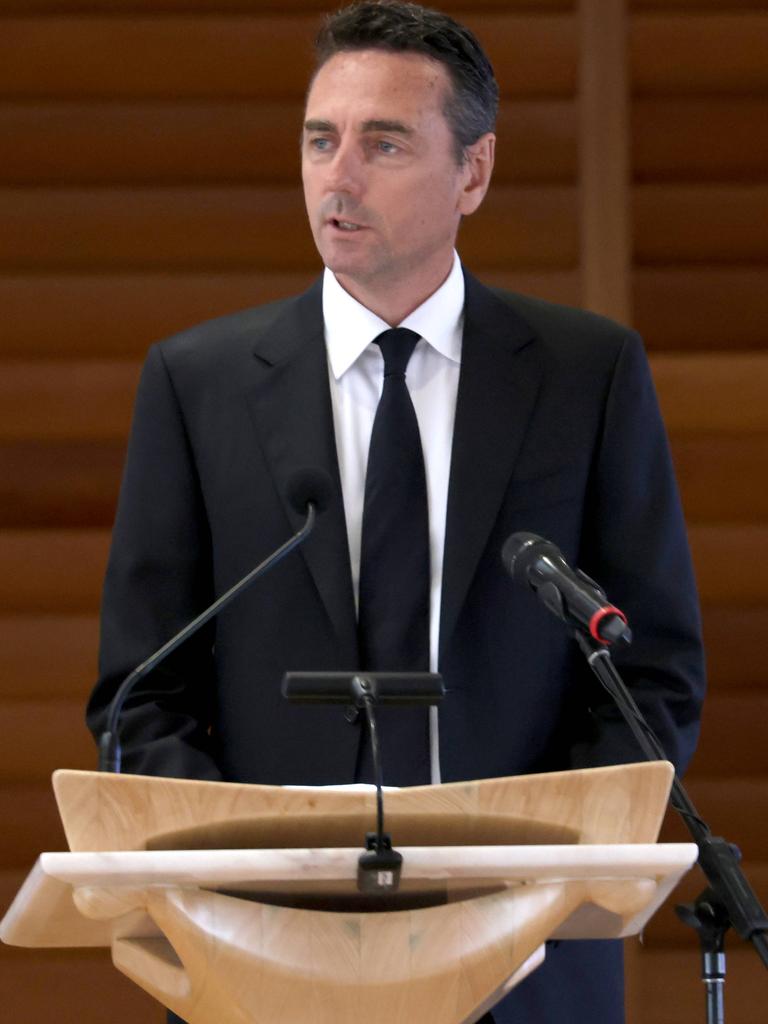
Opposition Leader David Crisafulli said Mr Ahern served with “great dedication, unstinting enthusiasm and an abiding sense of duty”.
“He put people above politics,” Mr Crisafulli said.
Mr Ahern “used politics to bring out the best in people” by collaborating to meet societal challenges with “a combination of innovative thinking and hard work”.
Other dignitaries in attendance included Federal Opposition Leader Peter Dutton, Governor of Queensland Jeannette Young, Treasurer Cameron Dick, Minister for Tourism, Innovation and Sport Stirling Hinchcliffe, and former premiers including Campbell Newman, Rob Borbidge and Russell Cooper.
Tony Fitzgerald and former governor-general Quentin Bryce were also present.
Terry White, who led the Liberal Party in 1983 and served as a minister alongside Mr Ahern, described his long-term friend as “unquestionably honourable”.
“He was respected by all sides of politics,” said Mr White, who went on to found Terry White Chemists.
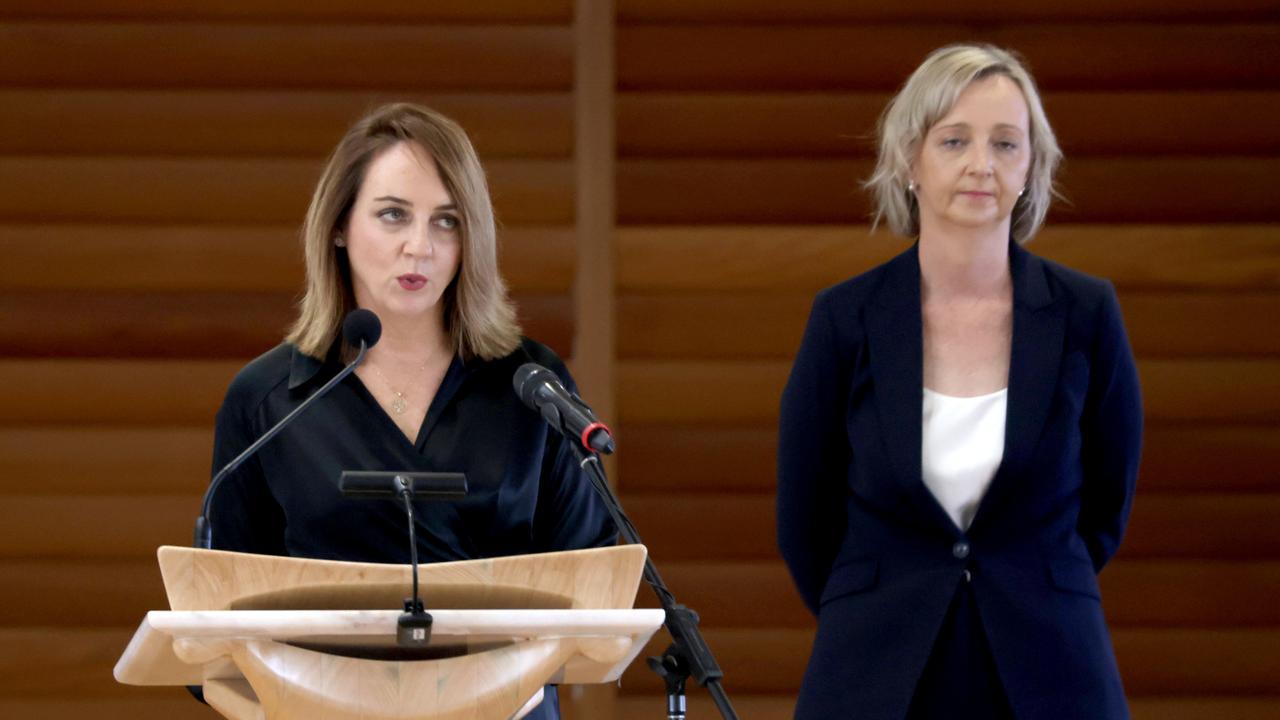
“Mike’s sense of fairness and commitment made him rise above petty party politics and negativity and perform his role objectively.”
Christine Ahern said her father “didn’t just tell us what was right; he showed us”.
Recounting Expo ’88 when Mr Ahern was Premier, she said it would have been easy for her and her siblings to get priority access to the popular South Bank event.
“But Dad sent us to the back of the (entry) line each and every time because he said, that is not fair, that is not right.”
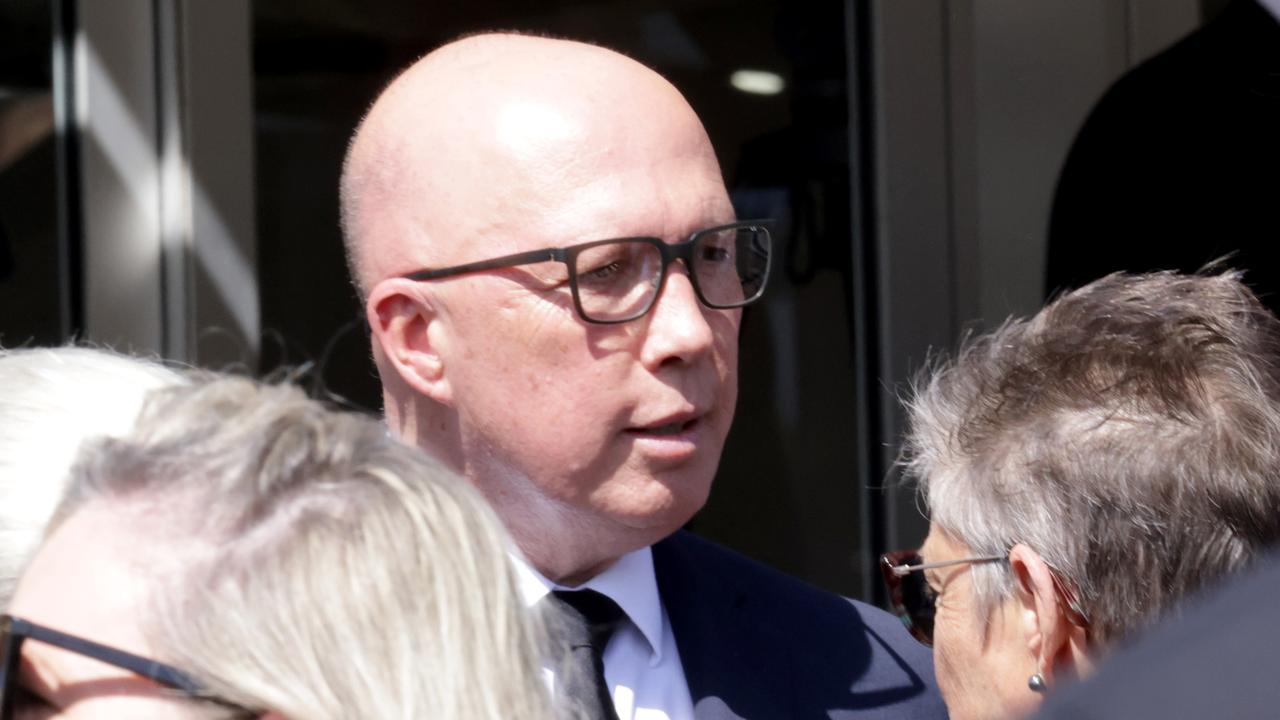
Ms Ahern, a Melbourne-based television reporter, said her father didn’t always like what was written about him in the press, but he never had a bad word to say about journalists as he realised they were an important part of the democratic process.
Mr Ahern’s other children Louise, Claire and Sharon also spoke while grandson Maxwell Reibelt said his “Pa” was “wise and knowledgeable” and “was always on your side if you wanted ice cream”.
Mr Ahern, the son of a dairy farmer, was Premier from December 1987 to September 1989.
Replacing Sir Joh Bjelke-Petersen, who was forced to resign after the damning Fitzgerald Inquiry findings, Mr Ahern promised a fresh government that would be consultative and cooperative, guided by his “vision of excellence” for Queensland.
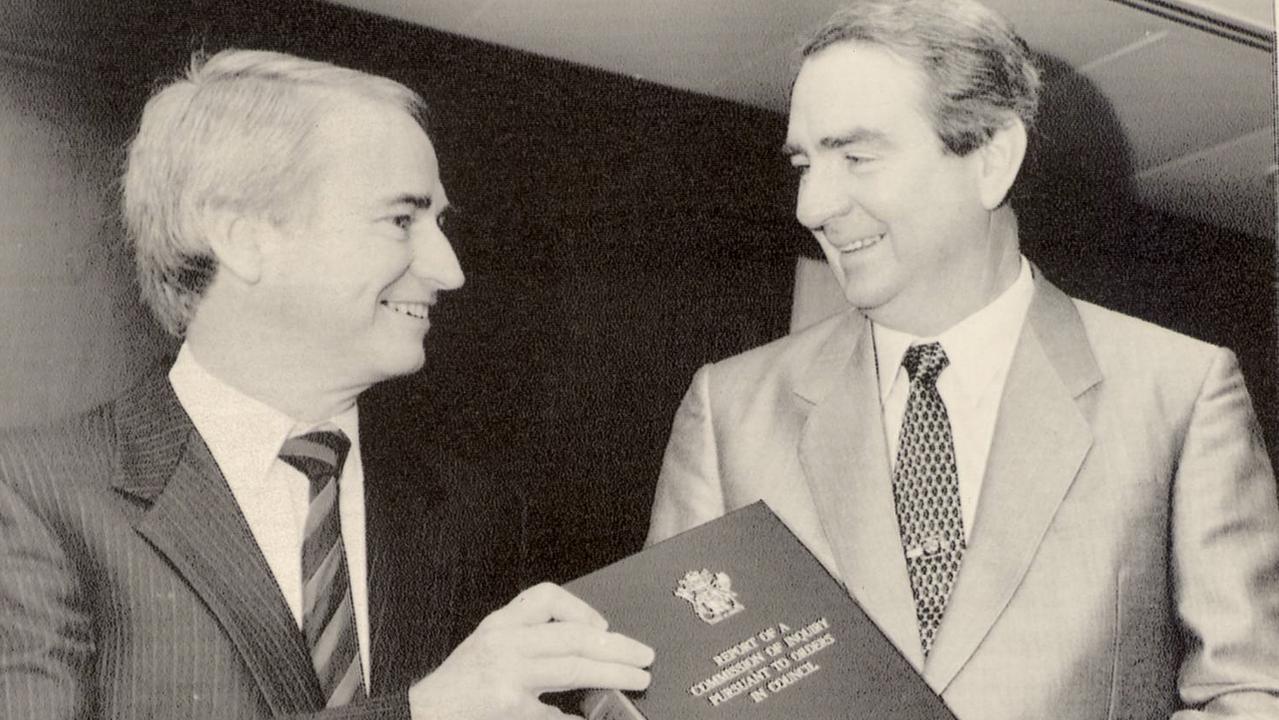
After the Fitzgerald Inquiry findings were handed down in July 1989, he quickly set about creating new ministerial guidelines and overhauled the archaic electoral system.
During his reign as Premier, Mr Ahern also served as Treasurer, Minister for the Arts and Minister for State Development.
Born in Maleny on June 2, 1942, Michael John Ahern attended Conondale State School and Downlands College in Toowoomba.
Following his father Jack Ahern into the National Party (Mr Ahern senior was president of the then Country Party from 1964 to 1967), he became the youngest MP in the state’s history.
He was also then the most educated in the party, having studied agricultural science at the University of Queensland.
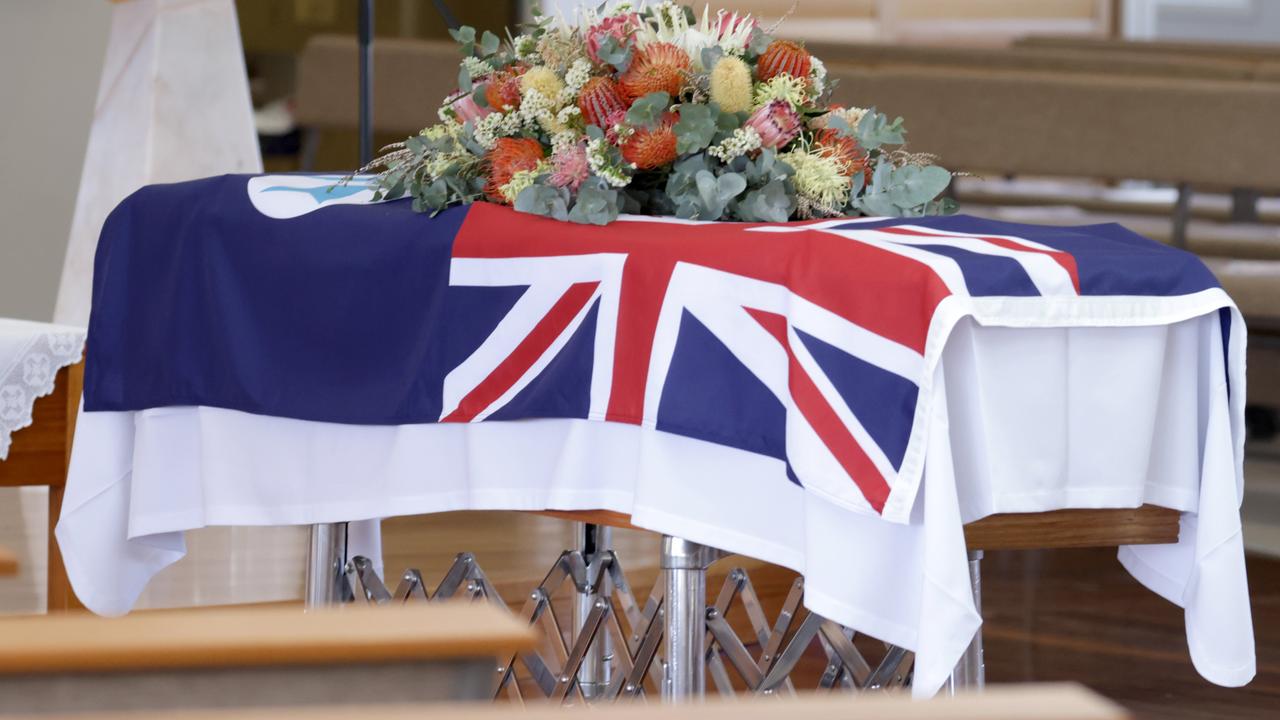
Aged just 25 in 1968 when he replaced the retiring Sir Frank Nicklin in the Landsborough electorate, Mr Ahern – who held the seat until his own retirement from politics in 1990 – would forever be known as “the Conondale kid”.
Over a lifetime of service, Mr Ahern was regarded as a principled man.
He certainly wasn’t intimidated by Sir Joh Bjelke-Petersen, unlike others in the Nationals.
A case in point was after his appointment as Health Minister in late 1986, Mr Ahern went against Sir Joh and secretly ordered blood tests on Aboriginal and Torres Strait Islanders to stop an AIDS epidemic and save hundreds of lives.
Mr Ahern told The Courier-Mail in 2017 that “Joh was aggressive towards me in relation to this”.
“He felt that somehow or other God was punishing these people and I should leave it alone and let God look after his own. I said, ‘I can’t do that’.”
A safe-sex education program began and although Sir Joh told Mr Ahern church leaders wanted him sacked over his AIDS awareness program, this didn’t deter his resolve.
Mr Ahern enlisted Sister Angela Mary Doyle (now aged 98) from the Mater Hospital to bring the safe-sex message to the homosexual community in Queensland.
He also openly held the hand of an HIV-positive man to diffuse hysteria around AIDS.
Mr Ahern led by example.
But his time as Premier was tough.
After staring down a belligerent Sir Joh – who refused to resign until four days after Mr Ahern won a spill motion to become the Nationals’ leader – Mr Ahern was viewed with suspicion by some of his peers.
Paradoxically, the Fitzgerald Inquiry Mr Ahern promised to embrace underpinned his downfall.
The Nationals’ reputation under 19 years of Sir Joh had been irrevocably tarnished.
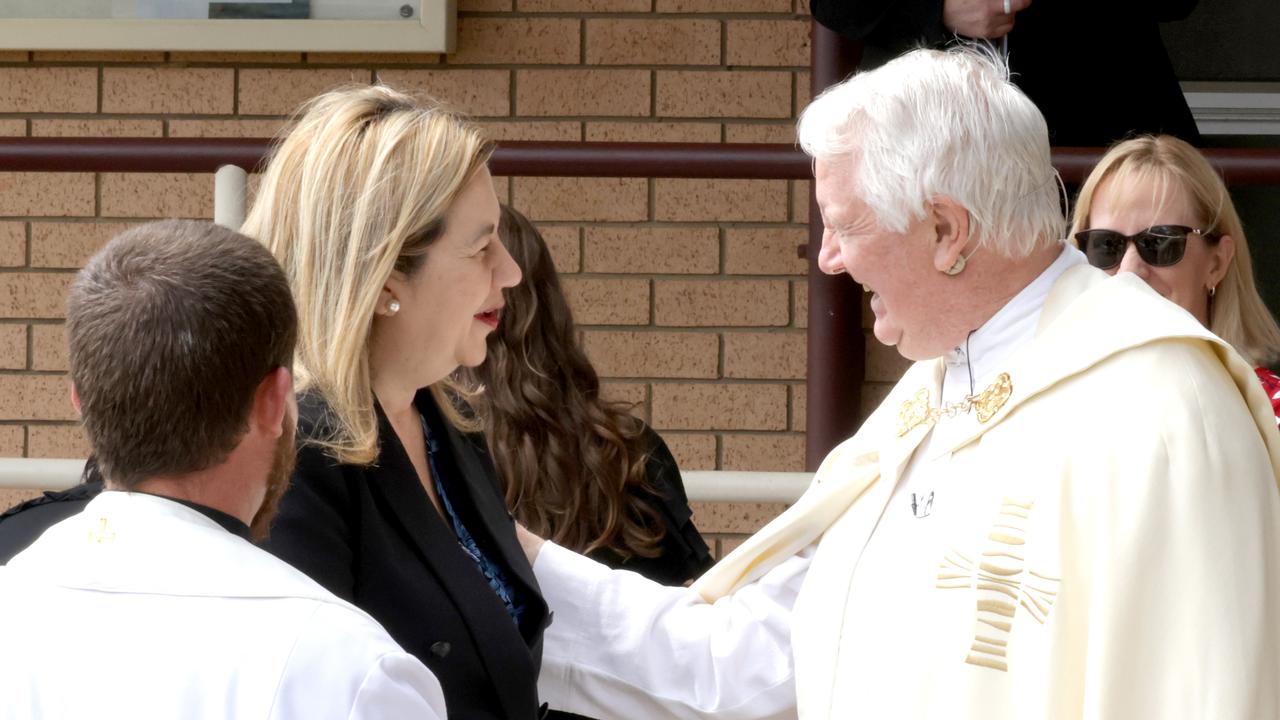
Although Mr Ahern announced plans to reform the public service and Parliament, brought in legislation to tackle domestic violence, and notably took a more consultative approach than his predecessor, the damage had been done.
In the wake of the inquiry, a Newspoll showed the Ahern government had a dismal 22 per cent support.
With Labor considered a hot favourite – after decades in the political wilderness – to win the upcoming state election, Russell Cooper successfully challenged Mr Ahern for the Nationals’ leadership.
Two months later, on December 2, 1989, Wayne Goss swept Labor to power.
Mr Ahern retired from politics the following year.
With his wife Andrea and children beside him, he told reporters he had “no regrets”.
“I’m very proud of the achievements which I’ve had – and I’d just advise any others, any kids that are looking at serving, there’s no tougher job that I know,” he said in 1990.
Mr Ahern went on to achieve success in the business world.
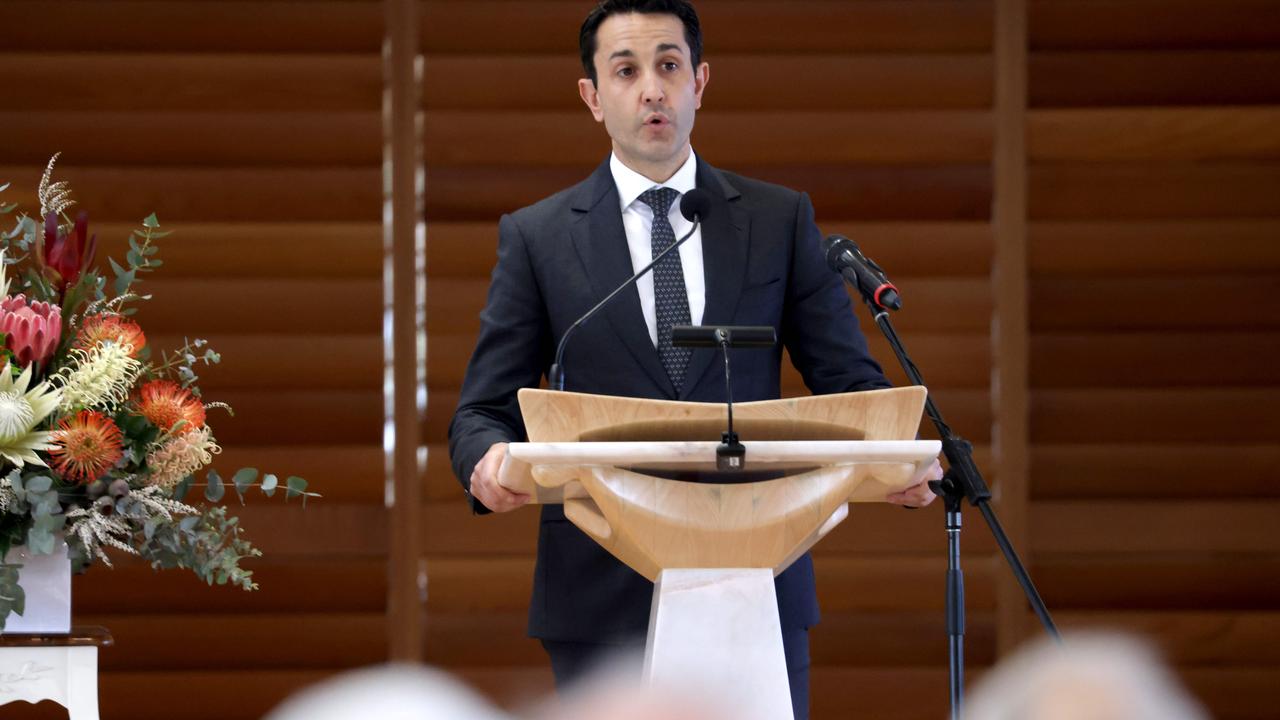
He served as chairman of Intrapower, Family Care Medical Services, McIntosh Financial Planning, and was a Fellow of the Australian Academy of Technological Sciences and Engineering.
But it was his role as chairman of the Australian Liver Foundation and establishing the Queensland Community Foundation that his family said were among his proudest professional achievements.
Mr Ahern, who was appointed the Beattie government’s special representative for Africa, The Middle East and India, received a Centenary Medal in 2001.
In 2007 he was appointed an Office of the Order of Australia (AO) “for service to the Queensland Parliament, to economic and trade development through fostering primary production and international relationships, and to the community through technological, medical research, educational and charitable organisations”.
He was named a Queensland Great in 2010.
At the time of his peaceful passing, Mr Ahern was surrounded by his loving family.




